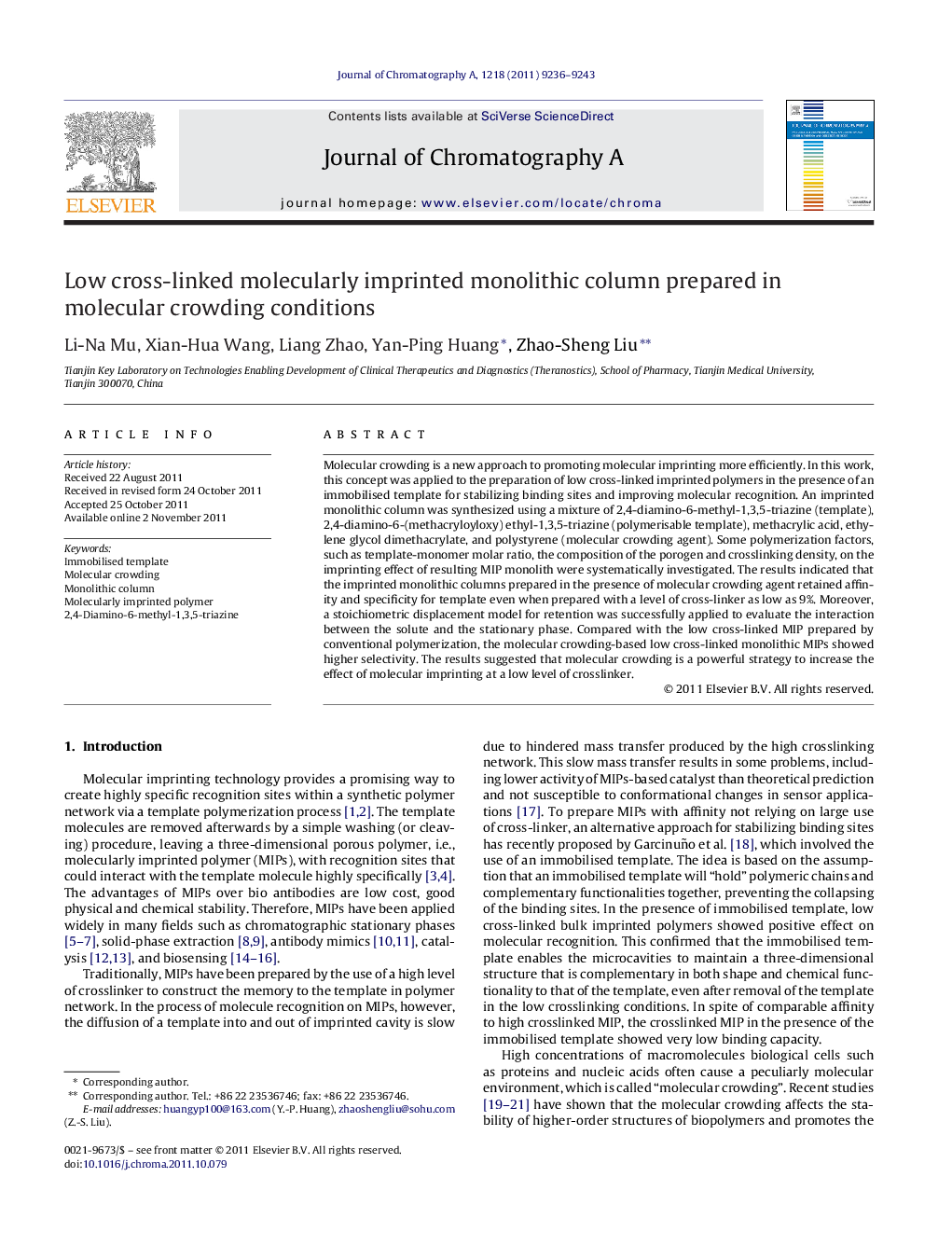| کد مقاله | کد نشریه | سال انتشار | مقاله انگلیسی | نسخه تمام متن |
|---|---|---|---|---|
| 1203270 | 965105 | 2011 | 8 صفحه PDF | دانلود رایگان |

Molecular crowding is a new approach to promoting molecular imprinting more efficiently. In this work, this concept was applied to the preparation of low cross-linked imprinted polymers in the presence of an immobilised template for stabilizing binding sites and improving molecular recognition. An imprinted monolithic column was synthesized using a mixture of 2,4-diamino-6-methyl-1,3,5-triazine (template), 2,4-diamino-6-(methacryloyloxy) ethyl-1,3,5-triazine (polymerisable template), methacrylic acid, ethylene glycol dimethacrylate, and polystyrene (molecular crowding agent). Some polymerization factors, such as template-monomer molar ratio, the composition of the porogen and crosslinking density, on the imprinting effect of resulting MIP monolith were systematically investigated. The results indicated that the imprinted monolithic columns prepared in the presence of molecular crowding agent retained affinity and specificity for template even when prepared with a level of cross-linker as low as 9%. Moreover, a stoichiometric displacement model for retention was successfully applied to evaluate the interaction between the solute and the stationary phase. Compared with the low cross-linked MIP prepared by conventional polymerization, the molecular crowding-based low cross-linked monolithic MIPs showed higher selectivity. The results suggested that molecular crowding is a powerful strategy to increase the effect of molecular imprinting at a low level of crosslinker.
► Low cross-linked imprinted polymers were prepared in the presence of crowding agent.
► Imprinted monolith was synthesized using a mixture of template and polymerisable template.
► Polymerization factors on the imprinting effect of MIP monolith were investigated.
► Stoichiometry displacement model for retention was applied to evaluate retention.
► Molecular crowding-based low cross-linked monolithic MIPs showed higher selectivity.
Journal: Journal of Chromatography A - Volume 1218, Issue 51, 23 December 2011, Pages 9236–9243